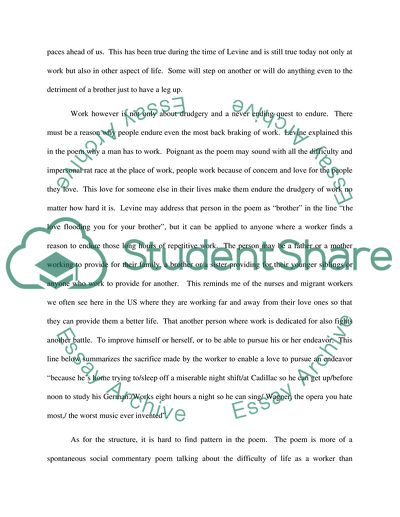Cite this document
(“Analysis of Philip Levines Poem What Work Is Essay”, n.d.)
Analysis of Philip Levines Poem What Work Is Essay. Retrieved from https://studentshare.org/literature/1659228-poetry-essay-assignment
Analysis of Philip Levines Poem What Work Is Essay. Retrieved from https://studentshare.org/literature/1659228-poetry-essay-assignment
(Analysis of Philip Levines Poem What Work Is Essay)
Analysis of Philip Levines Poem What Work Is Essay. https://studentshare.org/literature/1659228-poetry-essay-assignment.
Analysis of Philip Levines Poem What Work Is Essay. https://studentshare.org/literature/1659228-poetry-essay-assignment.
“Analysis of Philip Levines Poem What Work Is Essay”, n.d. https://studentshare.org/literature/1659228-poetry-essay-assignment.


